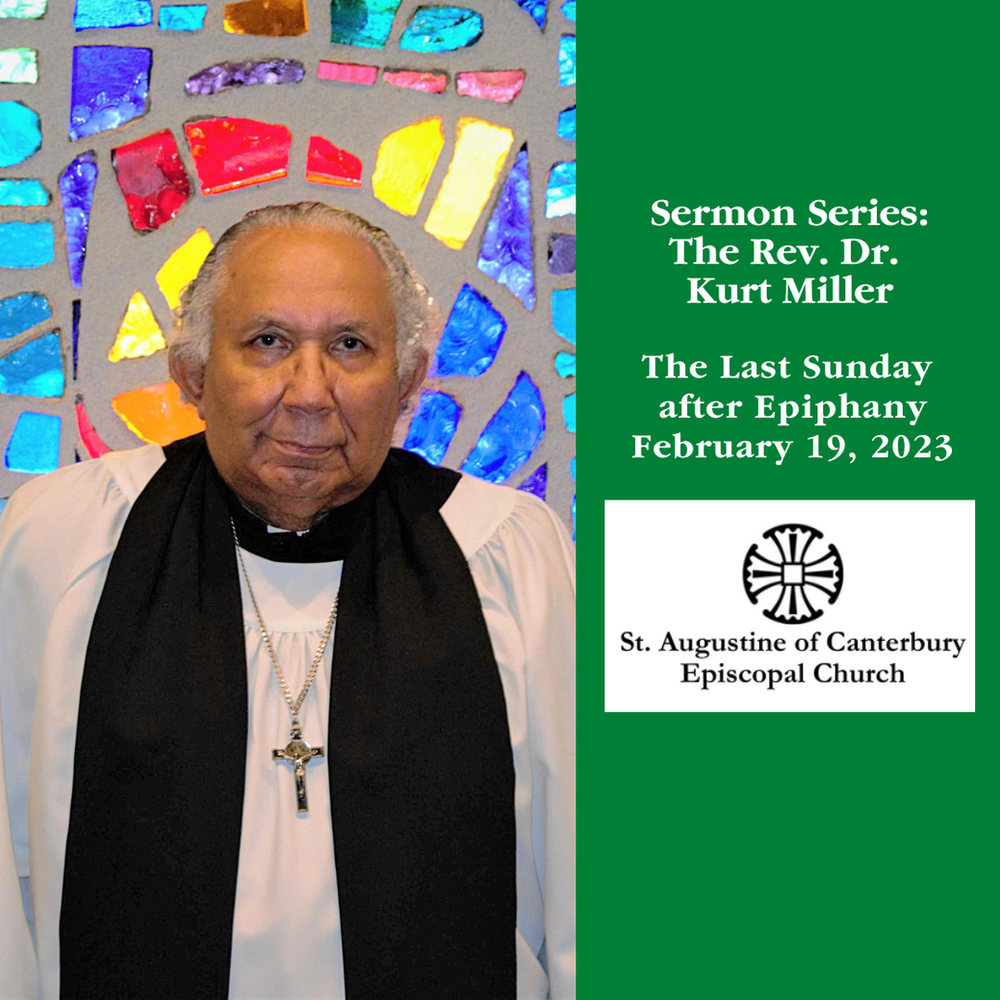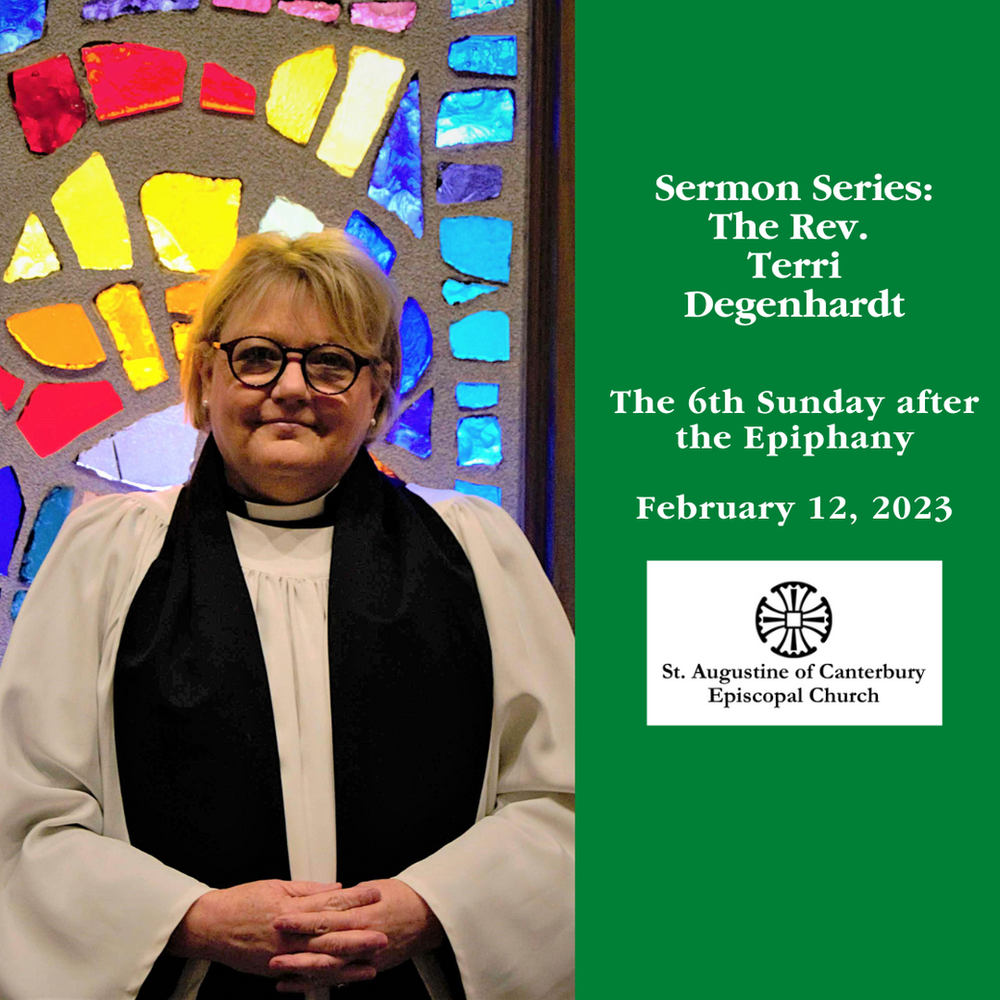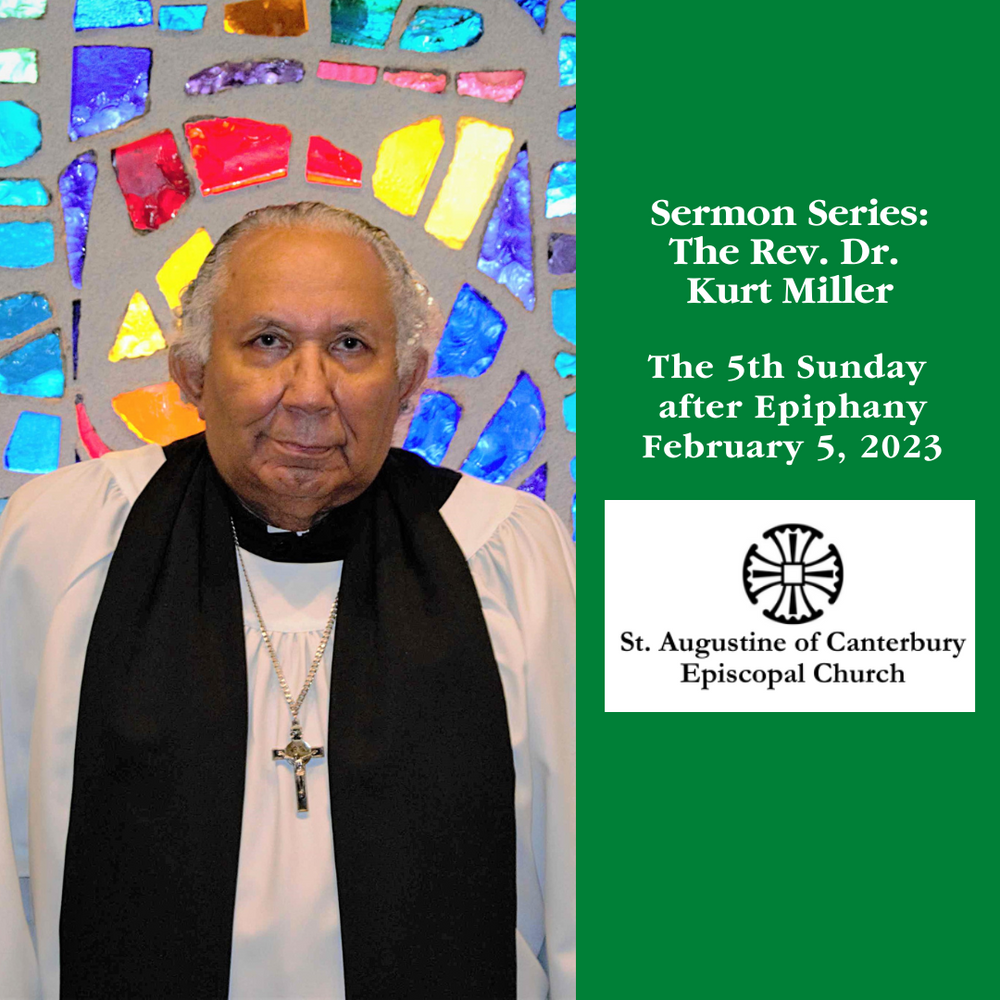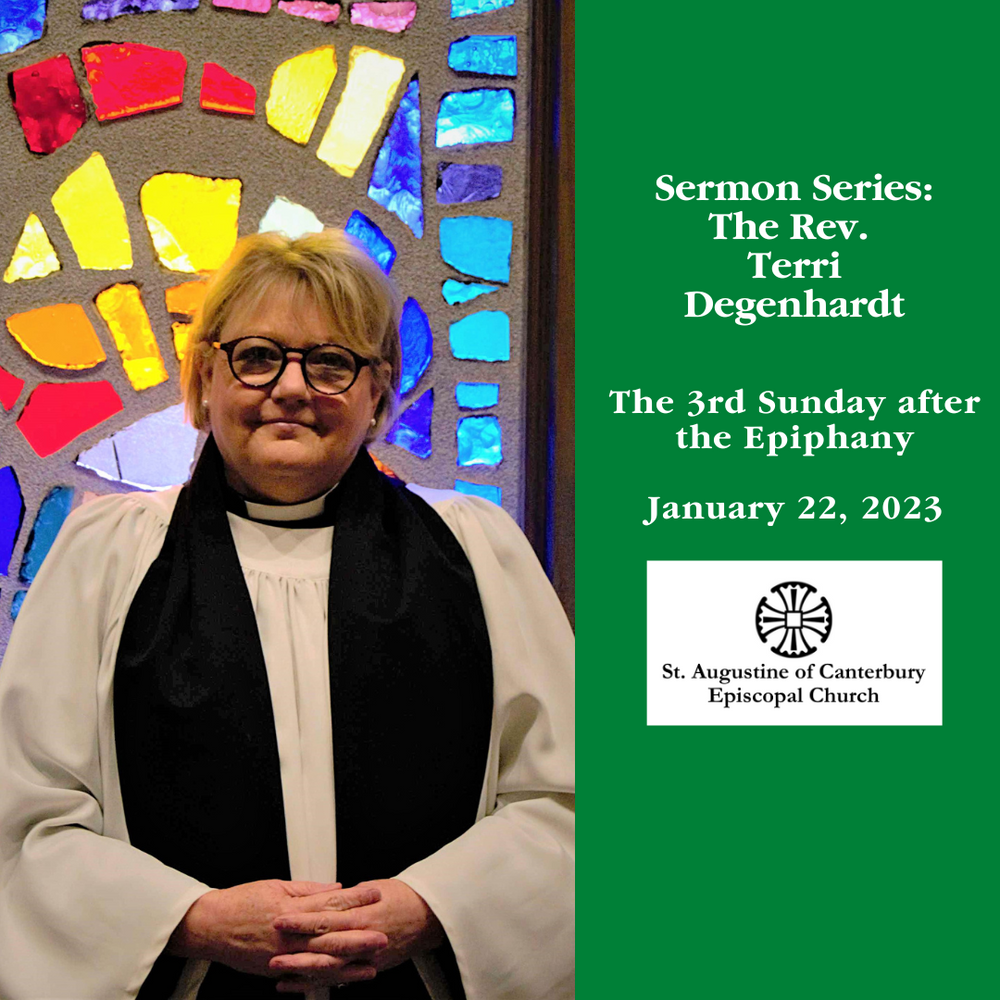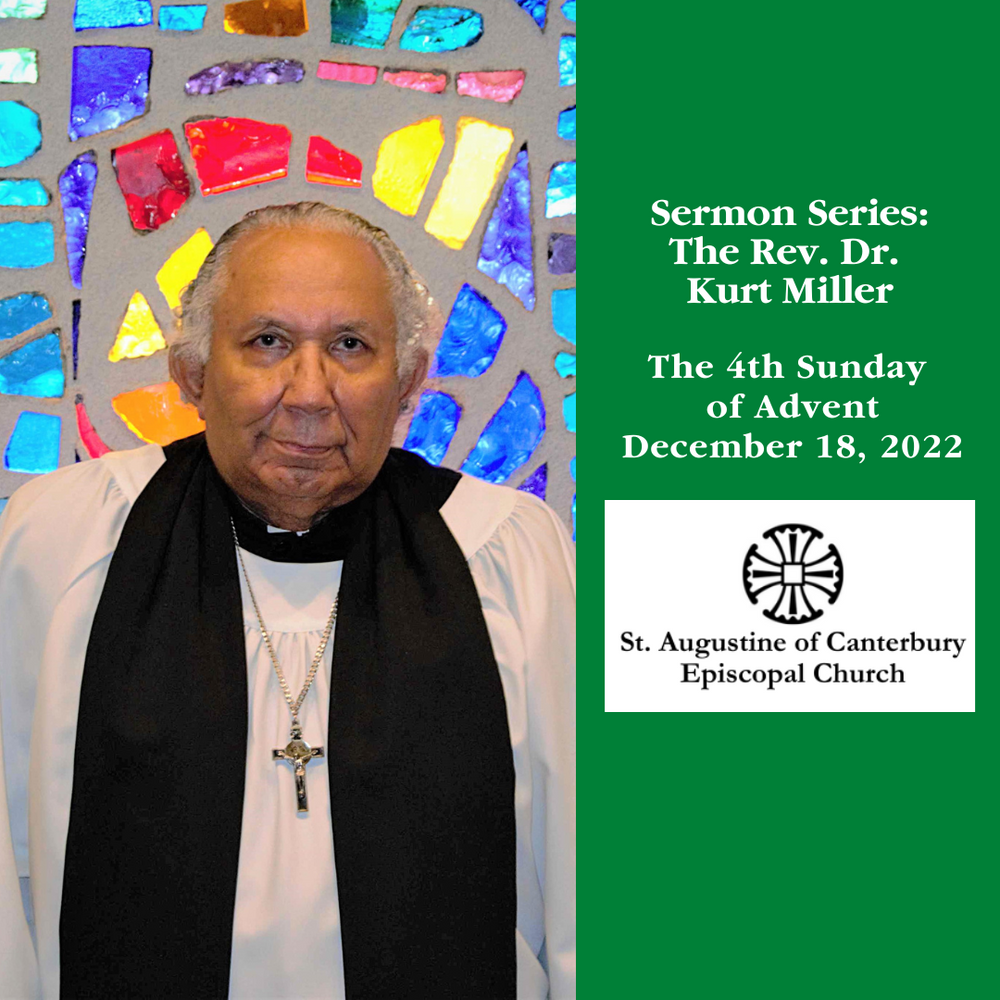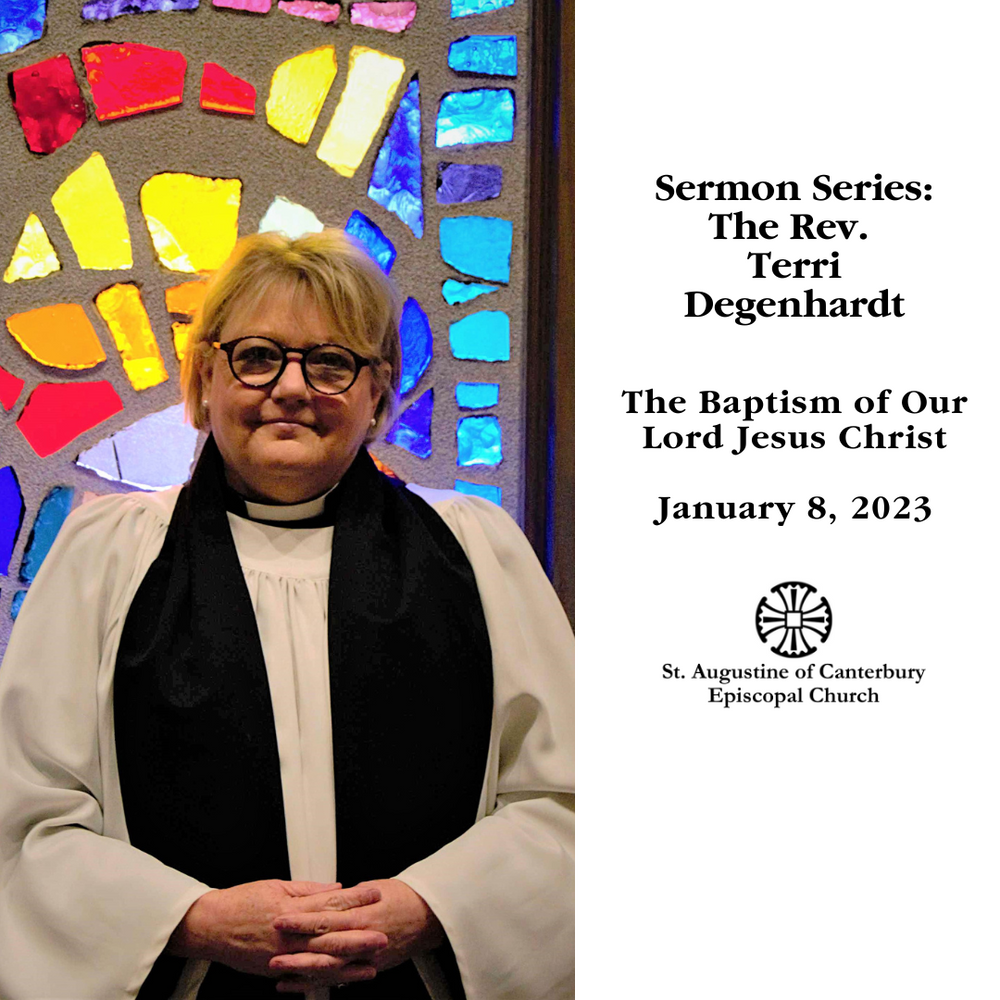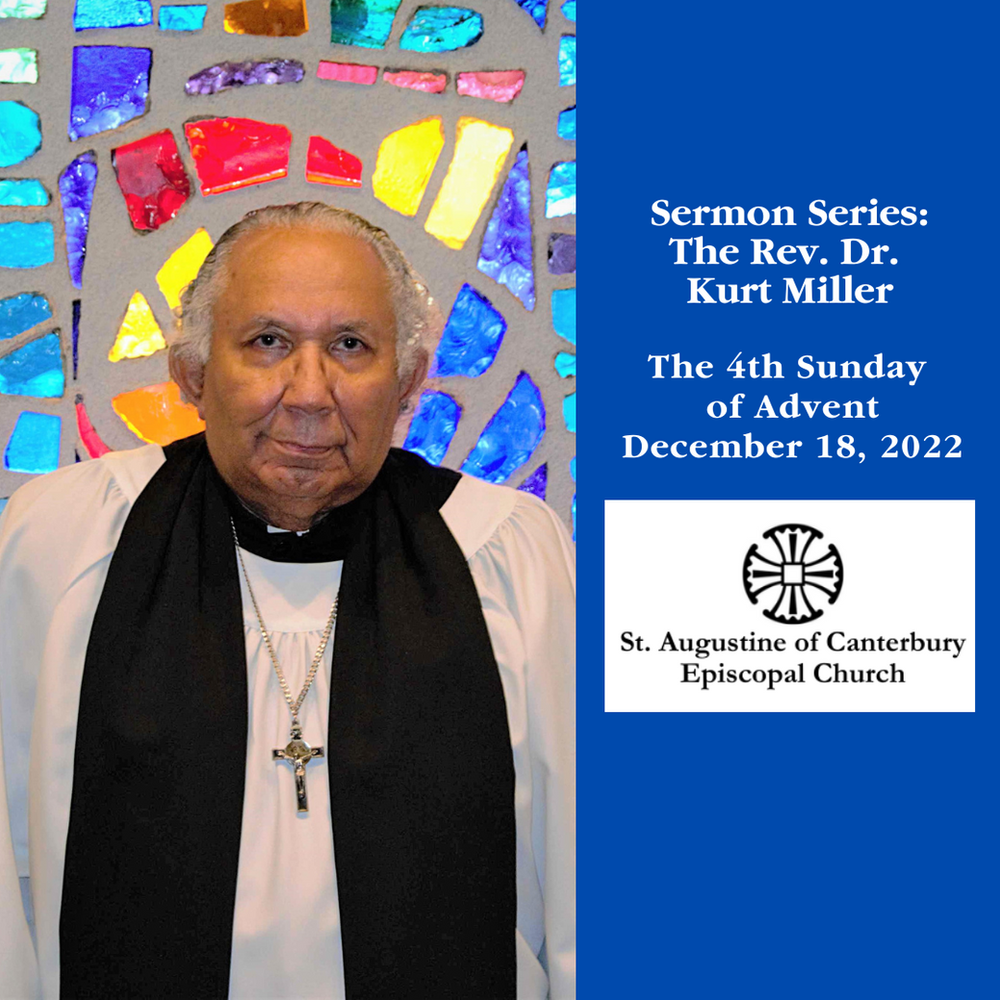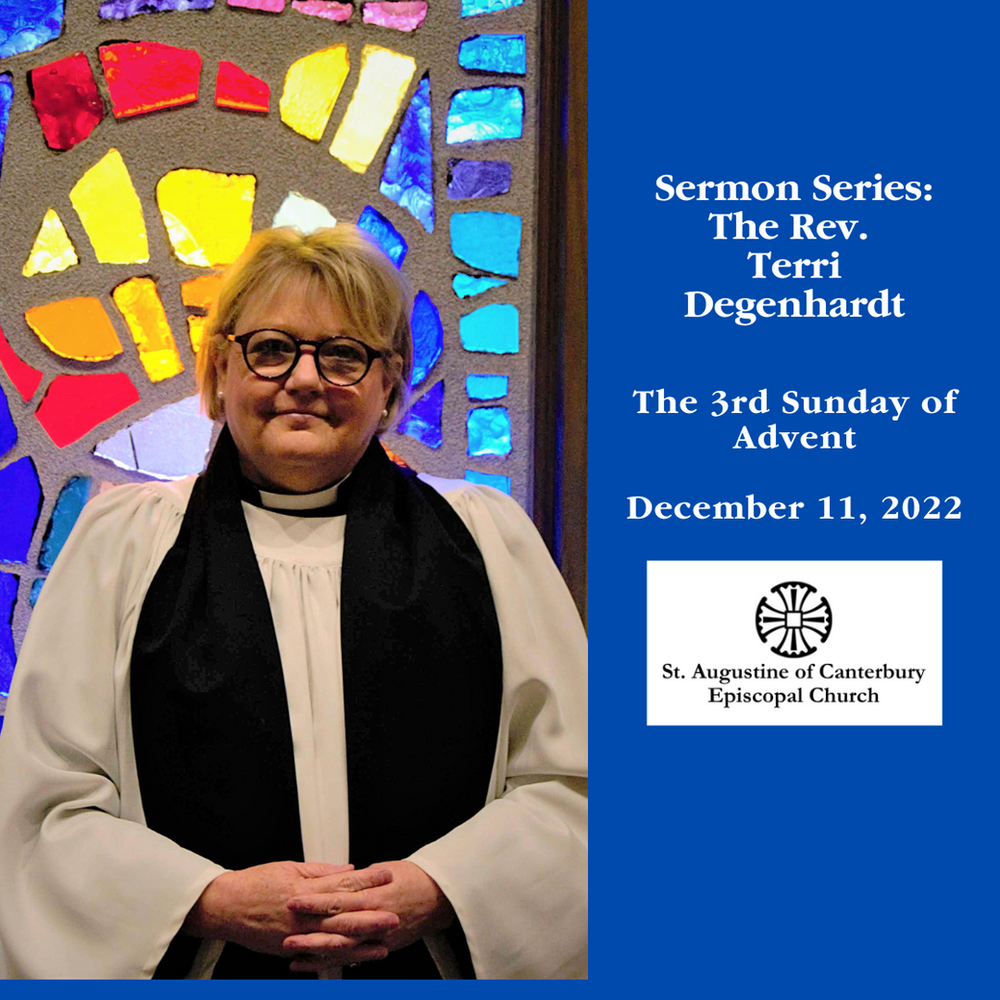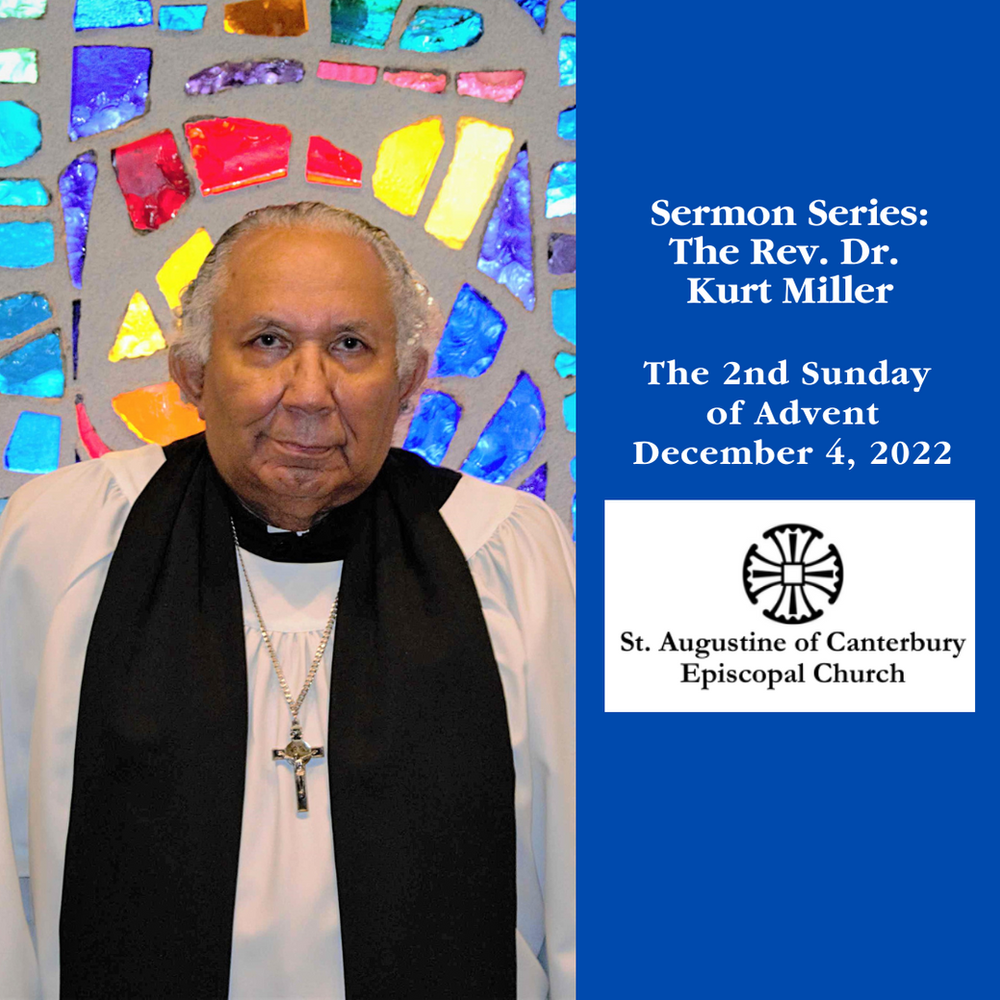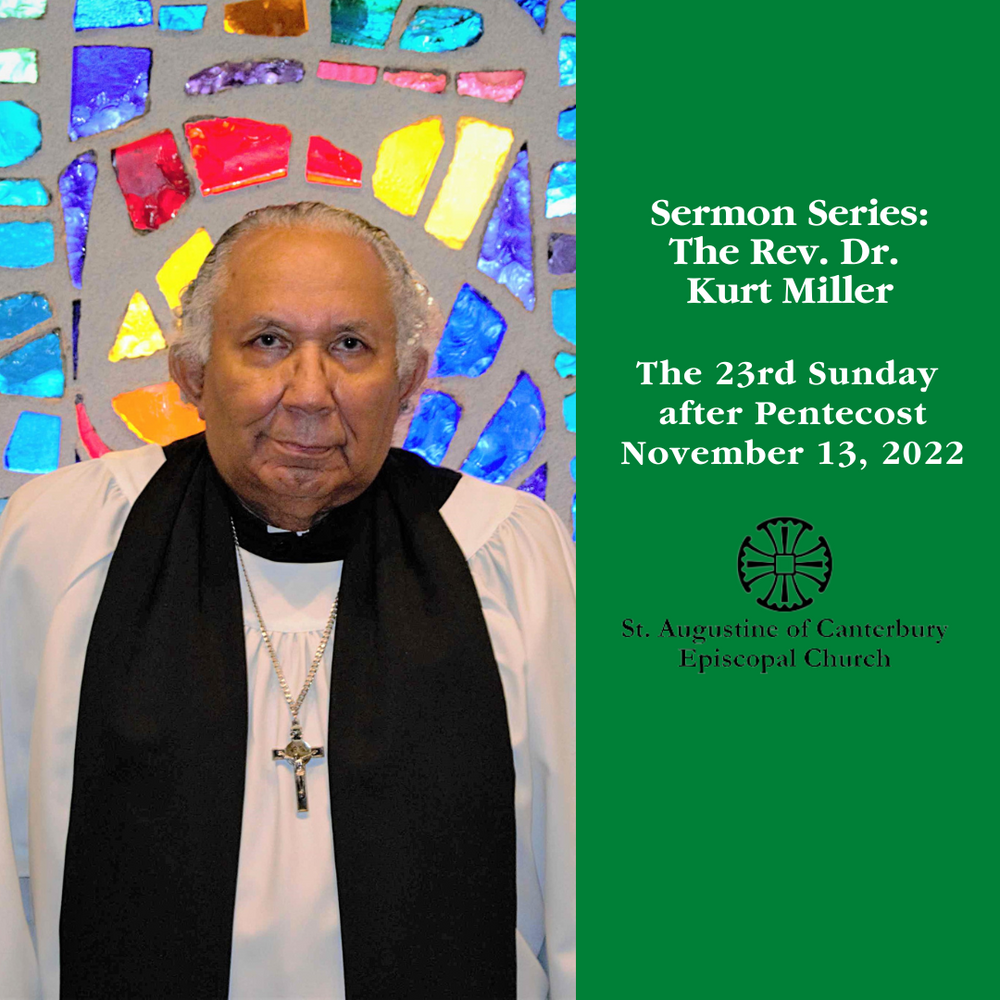Swords into Plowshares
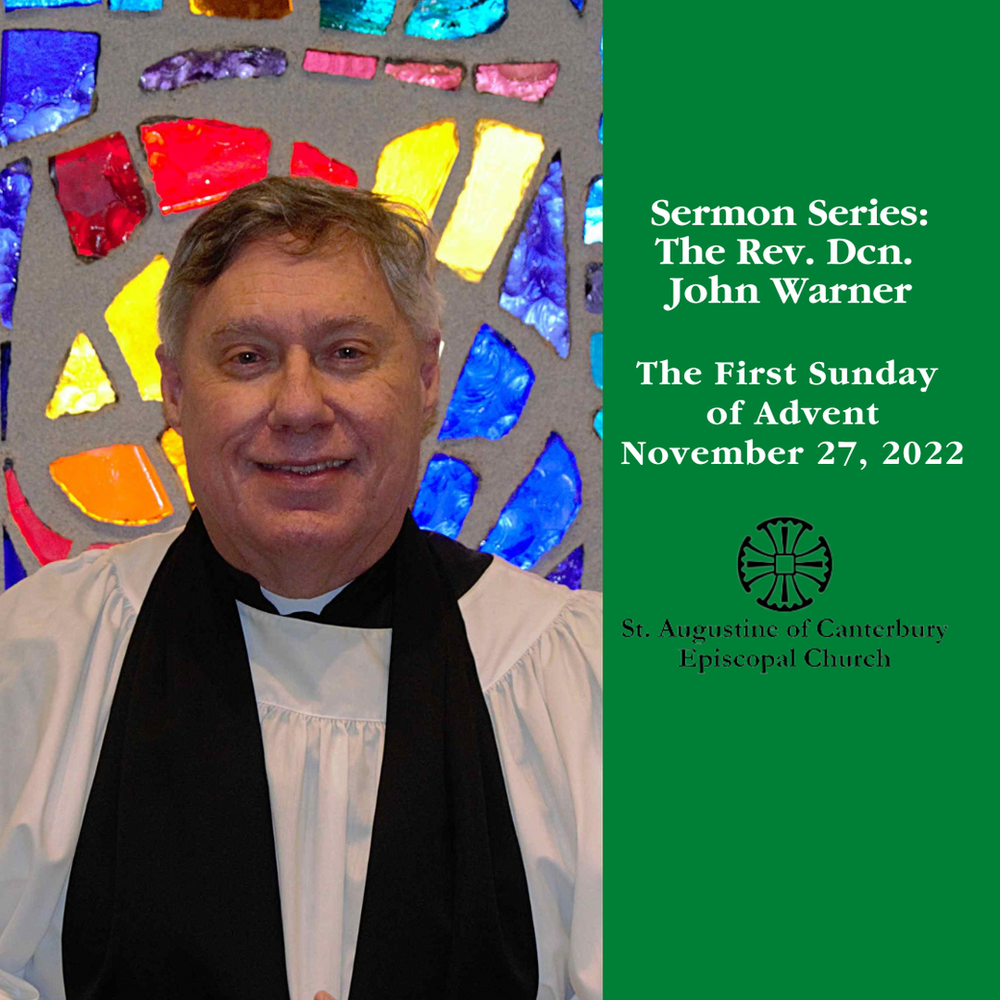
Happy New Year, St. Augustine! If you are like my wife and daughter, you might be confused about my opening remarks; however, I am referencing the church year and not the Gregorian calendar. Advent begins the church year, that period in which God comes to us. All the scriptural readings during this period embody themes of hope, peace and a future without fear. Our singing voices beseech “O Come, O Come Emmanuel” during Advent and is replaced during the Christmas season with the child named Immanuel, “God with Us.” Although Advent ends with the coming of the Christ in the form of a baby, this is not the focus of today’s readings. Today, we do not start at the beginning. We start at the end known as the eschaton, the end times when God’s plan reaches fruition. The Gospel tells the listener to be ready for Christ’s unexpected return with some going about their daily tasks being taken while others would not, this is known, popularly, as the Rapture. I will not be preaching on these scriptures leaving this fantasy to the Left Behind series. However, this reminds me of a recent bumper sticker, “In case of Rapture, this car will be unmanned.” This bumper sticker led to another bumper sticker, “In case of Rapture, can I have your car?”
This prophetic voice of judgement, peace and absence of fear is reflected in a verse in the second chapter of Isaiah:
He shall judge between the nations
and shall arbitrate for many peoples;
they shall beat their swords into plowshares
and their spears into pruning hooks;
nation shall not lift up sword against nation;
neither shall they learn war any more. (Isaiah 2:4 NRSV)
Swords into plowshares; spears into pruning hooks . Isaiah’s words are reflected in the book of Ecclesiastes, “A time to kill,” and “a time to heal,” a “time to tear down” and a “time to build up” (Isaiah 3:3). What can we say about the recent national election? Was it a time to tear down or a time to build up? Some may see this election differently.
This election has been, again, a bitterly contested battle. Almost seven billion dollars were spent on political advertising nationwide. What was the opportunity cost for this expenditure – the next best alternative expenditure for this money? Political ads frequently point out the flaws of the other candidate but pay little time to how the candidate believes that he or she can make a difference. Those in power seek to remain in power; those not in power seek to gain power. Politicians running for office promise to reach across the aisle in a bipartisan, a working together, fashion but rarely do. Many citizens across the political spectrum wish that elected officials would work together to solve some of our country’s financial and social problems. Even Charlie Brown’s friend, Linus, of Peanuts’ fame in a recent political cartoon hopes that this will happen. He is standing in the proverbial pumpkin patch, the same one he stands in awaiting the rise of the Great Pumpkin on Halloween, but this time he makes another wish. He calls out, “Tonight is the night the Great Bipartisan Pumpkin will come. Charlie Brown’s sister, Sally, standing next to him, believes that he has lost his mind.
“Swords to plowshares, spears into pruning hooks.” Is Linus’ hope a pipe dream? How did we become such a divided nation? According to Amanda Ripley, author of the book High Conflct: Why We Get Trapped and How We Get Out , it occurs when healthy conflict grows to unhealthy high conflict. High conflict is destructive conflict. It divides couples, families, and groups into a good-versus-evil kind of feud in which “we” are good and “they” are evil. We know our position is superior to the other and we tenaciously fight for it without hearing the other’s voice. We are confused why anyone with common sense would believe the way they do. Whenever we encounter the other, either physically or on television or on social media, we have a gut reaction. Our chests begin to tighten, and we experience anxiety, fear, and dread. The two groups, “them” and ‘us” become polarized isolating ourselves into separate corners pointing fingers and yelling at the other. Nothing gets done. Once the conflict increases to a certain point, the original issue withdraws into the shadows, and conflict itself takes over and becomes the focus. We become like those two families in that 19th Appalachian feud, the Hatfields and the McCoys, who drew a dividing line separating one family from the other looking for evidence of any infraction and responding with violence.
“Swords to plowshares, spears into pruning hooks.” Do we need to wait until the end times before we find peace? Does the church offer any advice for this destructive conflict? The answers to these questions begin with a reminder of who we, the “us” and the “them”, are. Regardless which group we hang with, both are created in the image of God and loved in all our diversity. We may differ in our political persuasions, but we all have one thing in common, the incarnation of the divine within each of us. When we are face to face with our neighbor, even our political rival, we are staring into the face of Christ; therefore, we should, respect the dignity of everyone. Treating them with dignity includes truly listening, keeping an open mind, restraining that counterargument until you have heard the other, and seeking common ground wherever you can find it. However, if we remain in our respective corners and do not interact with the “them”, it is difficult to respect the dignity of the other. It is difficult to demonize the other once you interact with those with differing views and know their story.
When we pull back into our respective corners isolating ourselves with only people that think like us, we soon begin to fear the other. Does scripture offer us any solace? Yes! God frequently commands us through scripture: Do not fear. “Fear not” or some derivation of these words is repeated over 500 times in the Bible. For example, “Be strong and bold; have no fear or dread of them, because it is the LORD your God who goes with you; he will not fail you or forsake you.”(Deuteronomy 31:6) But now thus says the LORD, he who created you, O Jacob, he who formed you, O Israel: Do not fear, for I have redeemed you; I have called you by name; you are mine. (Isaiah 43:1). And one of my favorites: Peace I leave with you; my peace I give to you. I do not give to you as the world gives. Do not let your hearts be troubled, and do not let them be afraid. (John 14:27)
Isaiah prophesises that the Lord will arbitrate with or judge all people in the end, but who does Isaiah say will bring peace? They shall beat swords into plowshares. They shall beat spears into pruning hooks. God teaches us but we are the ones who make peace. Every conflict brings an opportunity to love “them”, to carry out Jesus’ command to “love our enemies.” Our words and future actions can either work for peace and reconciliation or can continue the strife and conflict. The future is in our hands. We cannot change the other, we can only choose what we do or say.
“Swords to plowshares, spears into pruning hooks.” So, in these contentious political times, remember who you are. Remember that God will never abandon us. Choose action that heals not destroys. As our opening collect directs, put on the armor of light – the armor of Christ - which lights the darkness within the chasm that lies between “us” and “them” and will illumine the path to reconcile each to the other. Therefore, we will no longer be “us” or “them;” we will all be children of God.
Amen


